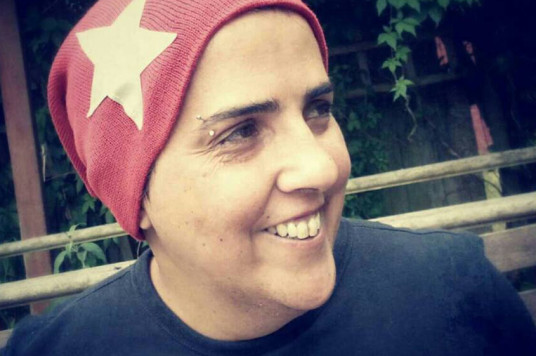Implant helps Helena take the plunge!
Helena Martins assumed she had woken earlier than normal when she was greeted by overwhelming silence. There was no sound of traffic outside. No birdsong or hustle and bustle of people going to work.
It wasn’t until she went to the bathroom and realized she couldn’t hear the water coming out of the tap that she realized what had happened.
“I just remember a wave of panic flooding through me,” says the 40 year-old who rushed downstairs to tell her partner what she had most dreaded – she had lost the hearing in her remaining ear.
It marked another stage in a gradual decline in Helena’s hearing that had begun six years earlier when she first suffering the effects of vertigo as a result of Ménière’s disease – a rare condition that affects the inner ear.
Helena began using a stick to combat the sudden bouts of dizziness and nausea but dreaded what she called ‘drop attacks’ when the spinning became so bad she simply collapsed.
“An attack can last a few seconds or a few minutes and is incredibly de-orientating. You have to either sit down or grab onto something or you risk falling over. It’s worse at night so really restricts what you can do
As a result, Helena had to give up many of her passions including hiking, motorbikes and surfing.
“Surfing was tough because I love water. It took three accidents including a near drowning to make me realise I couldn’t do it any more. I was a very active confident person and just found my world slowly closing in.”
Helena then started being affected by a constant ringing in the ears called Tinnitus followed by the gradual loss of hearing in her left ear. She tried a succession of hearing aids with varying success until she completely lost her hearing.
The problems with her remaining ear where almost too much to bear.
“Two of my greatest loves are film and music. My introduction to learning to understand English was through musicians like Queen and David Bowie and suddenly I could barely hear anything.
“It’s surreal to walk along a busy street and not hear anything. It feels like being inside a dream. It’s not a pleasant feeling and is very isolating.”
Helena’s first encounter with St George’s Hospital was not encouraging when it lost her referral form but she was overjoyed when she was finally given the go-ahead for a cochlear implant
A cochlear implant is a small electronic device that consists of an external portion that sits behind the ear and a second portion that is surgically placed under the skin to aid hearing.
Helena added: “It doesn’t replace natural hearing but it’s a step forward and I am grateful to the doctors involved because I still feel sad about losing much of my hearing.”
A sign that life is looking up for Helena was the discovery that swimming is the one form of exercise that doesn’t trigger her vertigo. She now swims every morning at Tooting Leisure Centre and has discovered the pleasures of ‘open swimming’ taking part in several charity events held in the sea.
“I have part of my life back and that’s a step forward.”


